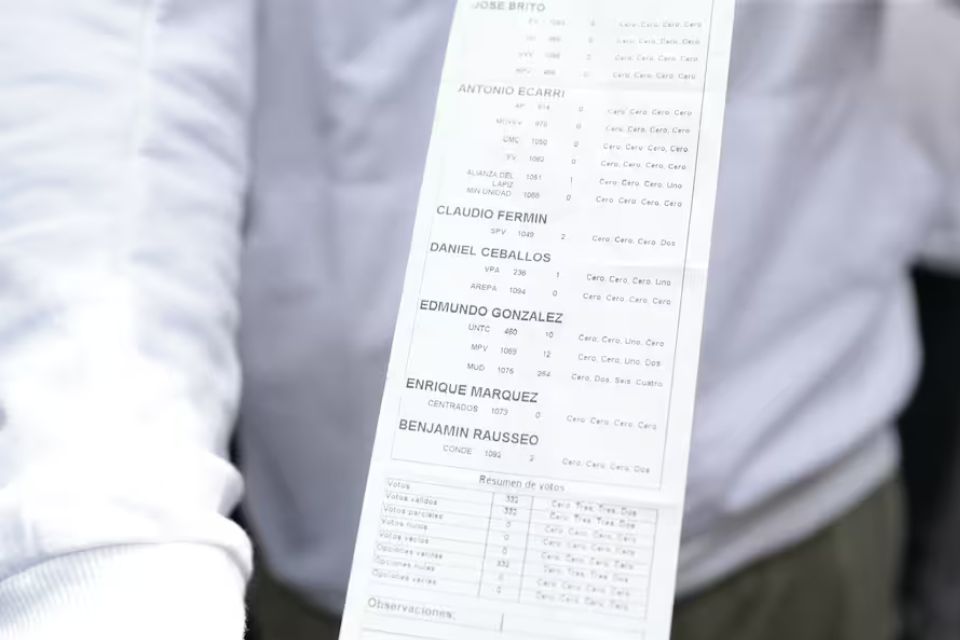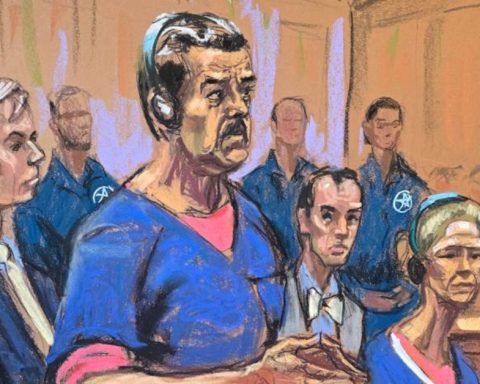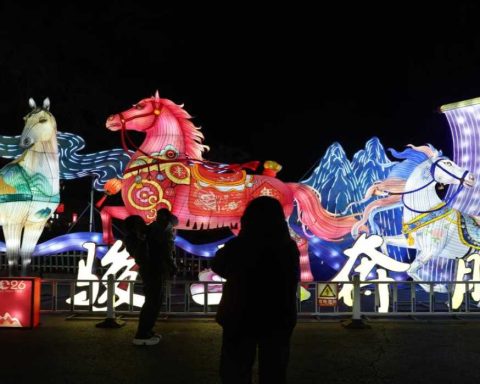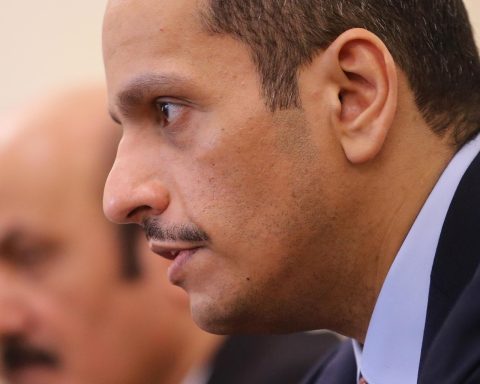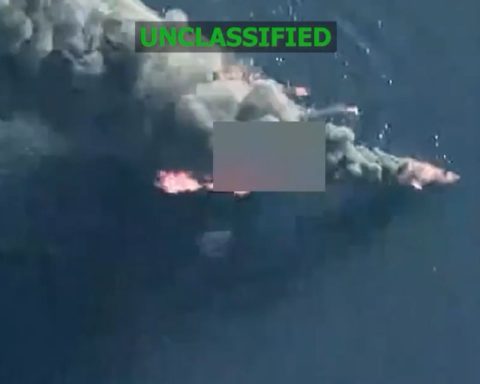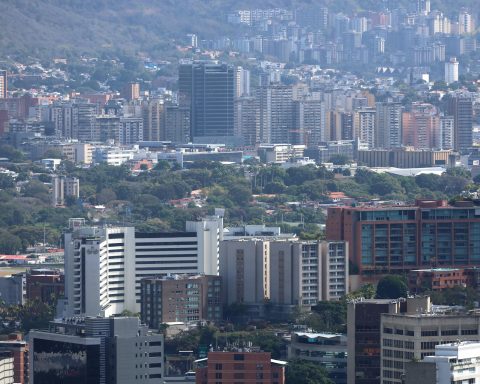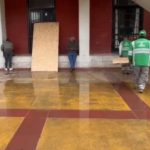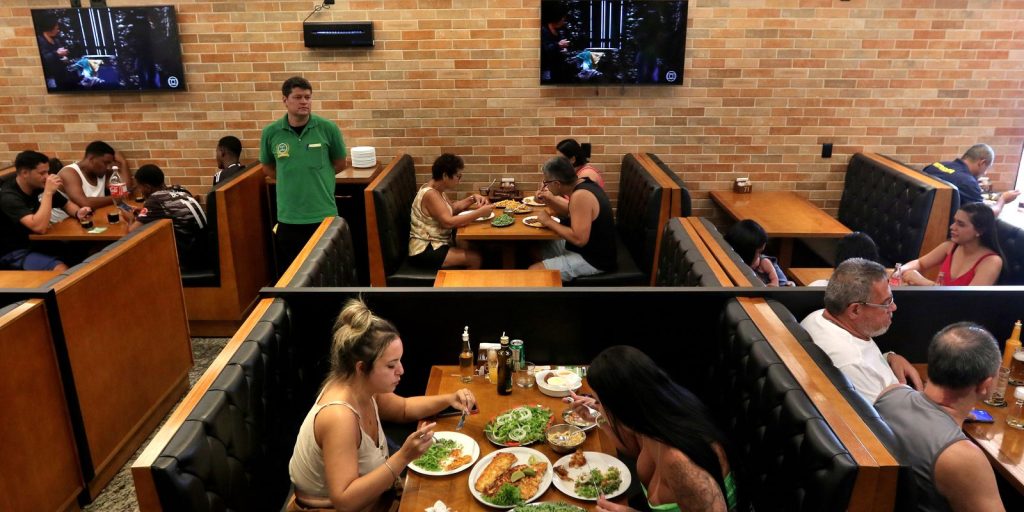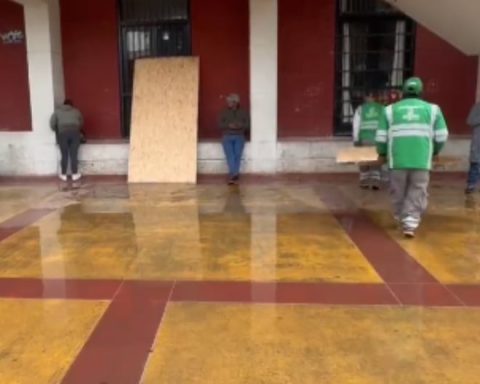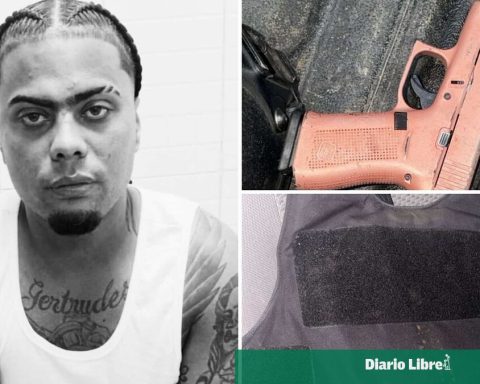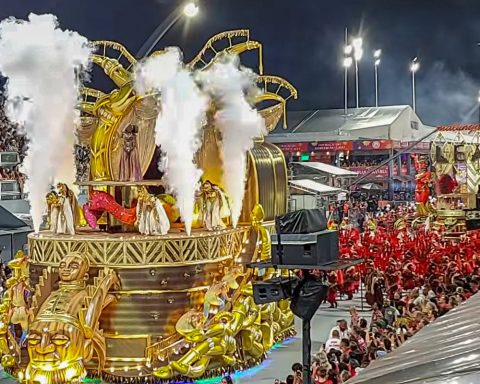Strategies to hide the records until they reached the command, a timed transportation circuit and the collaboration between witnesses and neighbors allowed the Venezuelan opposition to obtain 81.32% of the receipts and upload them to a website open to the world
Author: Venezuela Votes Team/ Venezuela Time
“I put it in a little book of the Constitution that I had brought with me and put it between my legs.”
Between the law and the body: this is how an opposition witness kept the electoral record at a polling station north of Barquisimeto, in the state of Lara, during the presidential elections of July 28 in Venezuela.
In Caracas, they found another hideout: “We put it inside our clothes, in our stomachs. Then a large group came to accompany us to where they were receiving the reports,” says a witness from a center in La Candelaria, Caracas.
The strategies used by the witnesses of the Command with Venezuela of the opposition candidate Edmundo González Urrutia to protect the electoral records were varied. What is common is that to obtain them they had to struggle for several hours with center coordinators of the National Electoral Council (CNE), with table members, with supporters of the ruling United Socialist Party of Venezuela (PSUV), communal councils and even with collectives.
Venezuela Vota, an alliance of independent media outlets, consulted 17 witnesses and polling station members from the Capital District and six states to gather these testimonies.
The order “from above,” according to those who agreed to be interviewed anonymously for this article, was to prevent opposition witnesses from receiving the paper record that the machine prints once the voting at each table is closed. Having the records is the only guarantee of proving how much each candidate got. For the opposition, historically, reaching agreements to cover all tables with witnesses accredited by the parties who would compile the records and make them valid had been complex. This time, it seems, they learned from their mistakes.
On June 28, for example, no one was alone:
“When they gave it to me, I put it folded in my pants pocket and left escorted by the neighbors who came to support us,” says a witness from Vargas.
–I kept the minutes with another person until midnight when I delivered them to the coordinator of the Command with Venezuela, says a witness from Barquisimeto.
“We protected them by moving them from person to person until they reached the hands of the person who was supposed to deliver them to the situation room,” they explain from Lagunillas, Zulia state.
-In my case, as it is a small center, I waited for an electoral coordinator of the [Unidad] “I was going to pick up the polling station at the parish. I was voting for the first time and it was the first time I was at a polling station,” said a witness from Maiquetía, near the international airport in Vargas state.
A network of citizen participation was essential in this electoral gymkhana designed by the opposition: while the witness was at the table doing his job of verifying the process and obtaining the minutes, outside a circuit of other actors was waiting for him to get it to a place where it was scanned and sent to a web repository. “There was a design with the commanders and manager and coach who managed centralized scanning points of minutes by zone. They were taken by motorcyclists. That process flowed perfectly,” says a member of González Urrutia’s Con Venezuela command.
Thanks to this relay race, the opposition managed to collect 24,532 votes, representing 81.32% of the total, which they uploaded to the web. Results with Vzlawhere anyone, anywhere in the world, can review them and analyze their authenticity. This is what independent organizations such as the Electoral Observation Mission of Colombiadata visualizers of the journal The country from Spainfrom the news agency Associated Press and curious individuals.
The consensus, for now, is that the records have a high level of confidence. This data, open to the world with the intention of proving what the opposition considers fraud by the Venezuelan National Electoral Council, would not have been possible without the logistics of taking care of the votes of the witnesses.
A hostile afternoon as a method
Although since the centers opened it was already heard that they were going to deny the right – by law – for the witnesses of the parties to receive a certified copy of the minutes, starting at 4:00 pm, two hours before closing the centers, the threat became more vocal: “There are no minutes for the opposition here.”
If the intention was for the witnesses to leave the center, it did not happen.
«At 4:00 pm they told us not to be annoying, that there were no records for the opposition. I was sitting at my table and suddenly the coordinator of the center for the CNE told us that if we wanted we could leave because they were not going to give us any records. I asked why and she said that they were orders from above,» said a witness from Vargas, a traditionally Chavista state, where Edmundo González obtained 61% of the votes and Maduro 36%. After pressure, he left the center with his record.
«I was told that in previous elections they gave [las actas]but not now. However, they gave it to me because I had stood there. I said that it was an electoral crime,” reveals a witness from the Tamaca parish of Barquisimeto, which was previously a bastion of the ruling party where the supply of water and gas for cooking is in the hands of groups and leaders of the ruling party.
Although opposition leader María Corina Machado said at a rally on August 3 that they had the records thanks to witnesses from the Comando con Venezuela, Plan República and the CNE, in several centers there is evidence of a maneuver by PSUV witnesses, Plan República officials and table members linked to the government to throw opposition witnesses out of the voting centers.
In Vargas, a witness says that in 30 years of participating in electoral processes she had never seen such a level of intimidation: “Getting the records was a real battle. With the coordinator of the center for the CNE, with the witnesses of the PSUV, with the officials of the Plan República who supported everything that the coordinator of the CNE said.”
In response to the witnesses’ determination, state security forces carried out arbitrary arrests and detentions of witnesses in Caracas and other cities.
It took Chavismo a while to react to the opposition’s recourse to showing the world the raw records, each with its unique “fingerprint.”
Five days after the election, Jorge Rodríguez, president of the National Assembly (AN) and Maduro’s campaign manager, questioned the legitimacy of the minutes published by the opposition. He presented photos of supposedly mutilated or incomplete minutes at a press conference. His arguments were dismantled by users on social networks who showed the original minutes. Six days after the election, Diosdado Cabello, a PSUV deputy, also said that he would make a special edition of his program Con el mazo daba (With the hammer giving), due to the minutes of the “coup opposition.”
#Attention #ElectionUpdate I receive multiple complaints from polling station witnesses who are being threatened. Intimidation is of no use; the brave Venezuelans who were witnesses and polling station members have already handed over the minutes to the campaign commands, they are already…
— Delsa Solorzano (@delsasolorzano) July 31, 2024
Meanwhile, the CNE has not published the numbers by center, region, or candidate (the organization’s website has been down since the Monday after the election), and Nicolás Maduro’s campaign command has not shown the electoral records given to them by their own witnesses. The Plan República, military guarantors of the security of the electoral process, also have the records in their possession. But only the opposition has shown them.
Post Views: 296
